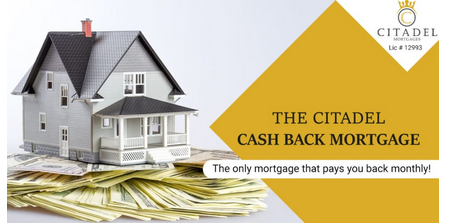
If you wish to refinance your home but are worried about rising home prices, consider a variable rate mortgage. These mortgages enable you to decide just how much you pay every month, without any restrictions, and you can adjust your loan amount while the housing market fluctuates. If you choose a variable rate mortgage and the housing market slides, you won't lose significantly more than the quantity you originally borrowed. If the housing market improves, however, you are able to refinance at a fixed rate without losing more than the initial investment. Fixed rate mortgages offer reassurance after making large commitments, while adjustable rate mortgages can be confusing and often change without warning.
A variable rate mortgage , fixed-rate loan, or reverse mortgage is really a loan contract with the interest rate temporarily adjusted in relation to an economic index that reflects the price to the borrower of borrowing in the credit markets. The loan may also be provided at the initial lender's current fixed interest rate. A floating rate, or adjustable rate, differs little from its fixed interest rate; additionally it varies slightly with changes in the economy. Although both are risky ventures, a variable rate mortgage offers you flexibility in selecting the payment amount, duration, and type of interest rate.
Some kinds of variable rate mortgages have a rate adjustment cap, which caps the original interest rate and any changes in the bottom rate can have no effect. Other variables may be adjusted up or down, but the cap will prevent a fluctuation during the term. If you should be concerned with the cap, you are able to call the business you want to buy the mortgage from and speak with a consultant about the details of the rate adjustment caps. These details will allow you to determine if your interest rate will undoubtedly be affected should the business raise their rate, as is common in today's marketplace.
Because variable rate mortgages are apt to have a higher initial interest rate, they routinely have an extended repayment period. They also tend to supply lower payments initially with monthly costs in comparison to fixed rate mortgages. Although this makes them ideal for borrowers who anticipate a growth in monthly income, they generally come with a higher monthly cost as a result of increased level of interest paid over living of the loan. In comparison, fixed rate mortgages routinely have a smaller term and a smaller initial payment; however, the monthly costs are usually higher. Borrowers who desire the security of a fixed rate mortgage should consider these loans but remember that their interest is likely to be affected if the mortgage company change its base rate in the future.
For more details check out second mortgage.
No comments:
Post a Comment